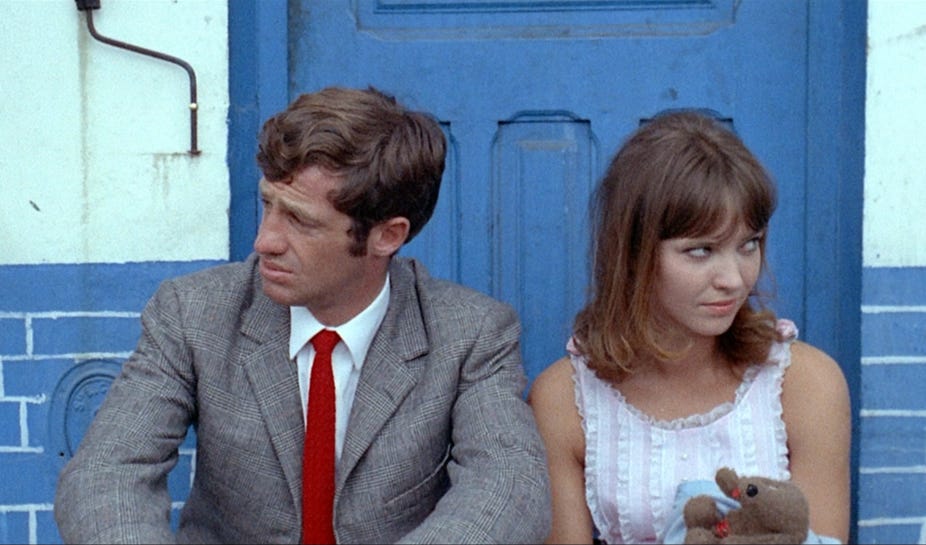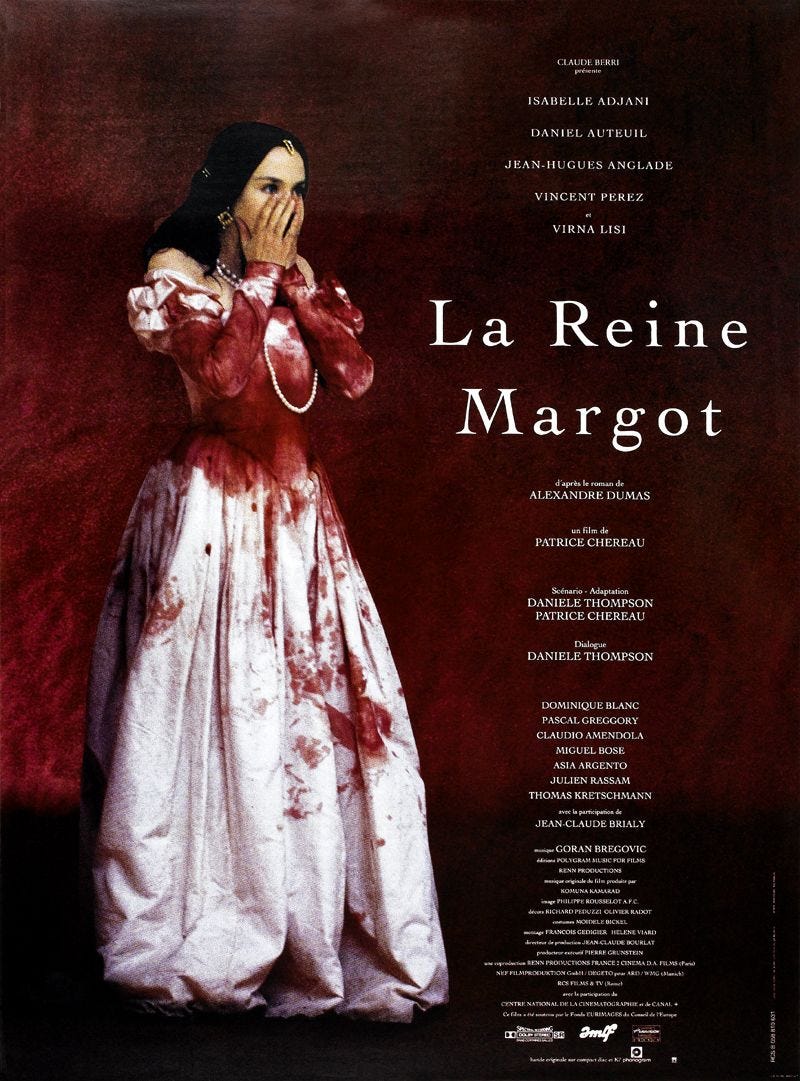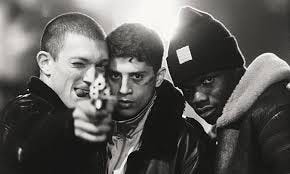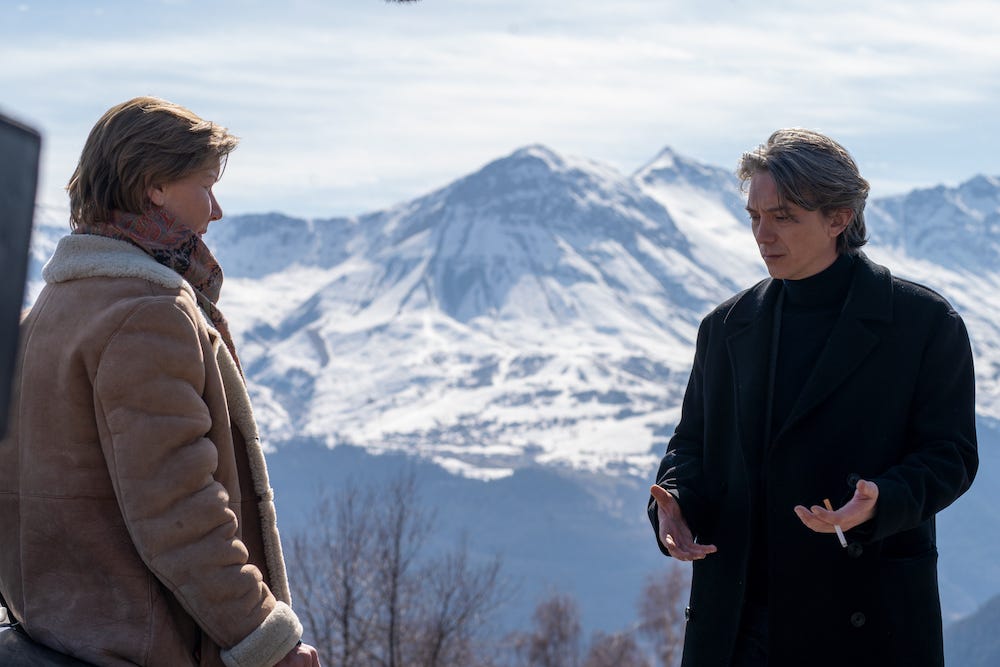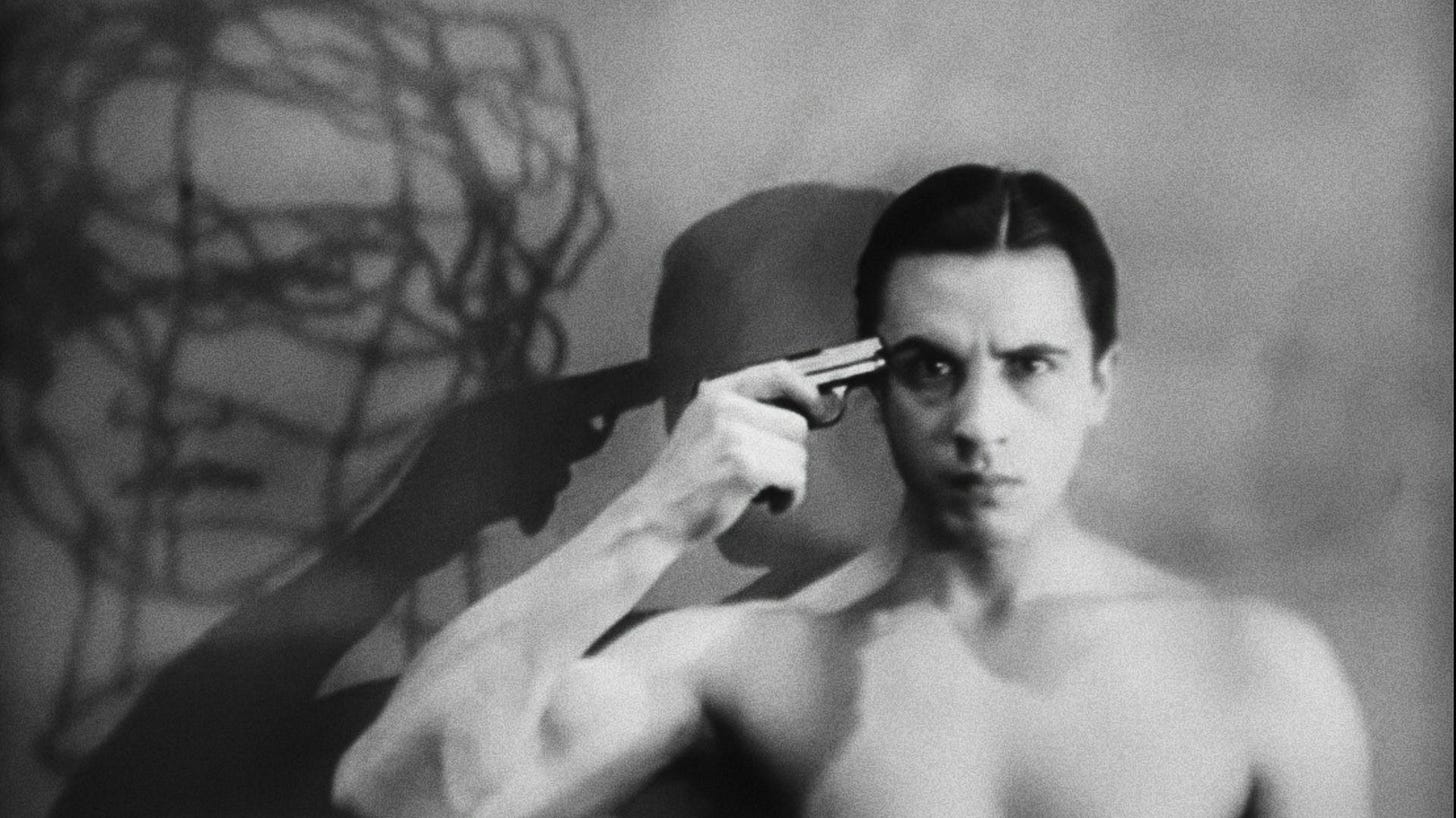5 French Films That You Should See
We all go through a French cinema phase in our lives, right?
On this day two weeks ago, I was sitting outside of a bar in Paris drinking red wine and smoking cigarettes surrounded by French speakers and trying my best to string together a sentence in French. Indulging in a Parisian fantasy by wearing a black and white striped t-shirt, a neck scarf and red lipstick, I was the epitome of cliché and I loved it. Every time I visit I imagine what it would be like to live there, learning and speaking French, becoming fluent, driving a scooter around and never quitting smoking because after all, it is a major part of the aesthetic. I realise now that I am a bit of a Francophile. While I was there, I remembered that period of my early twenties when I was obsessed by French cinema and because of that I’ve decided to make a list of five films that I think everyone should see, at least once in their lives.
Pierrot le Fou (1966), dir. Jean Luc Godard
Based on the novel Oblivion by Lionel White, Pierrot le Fou is my favourite Godard film. I haven’t seen everything he’s ever done but of what I have, this is the top of my list. A quintessential example of French New Wave, it’s a tragic-comedy about an odd couple eloping to the Mediterranean to escape from the series of crimes they commit together. The couple, played by the brilliant Jean Paul Belmondo and the mesmorising Anna Karina, have the perfect on-screen chemistry and could be compared to Bonny and Clyde in their activities while the dialogue is pervaded with philosophising about life, love and art. What I love most about this film are the colours, the pastel blues and primary reds and yellows fit perfectly; it’s almost like looking at a Mondrian painting. Of course, as with all Godard films, the pacing of how this film unfolds is captivating and it relishes in the small details that we don’t often see in film today.
Queen Margot or Le Reine Margot (1994), dir. Patrice Chéreau
Based on the historical novel by Alexandre Dumas, an author who’s work I have recently discovered through the book The Count of Monte Cristo, which I devoured with vigour. (I haven’t yet seen any films adaptations of Monte Cristo so I haven’t added them in this list but I’ve heard the recent French-made adaptation is spectacular). Queen Margot stars the overwhelmingly beautiful and equally talented Isabelle Adjani, portraying the tragic life of the ill-fated Queen during the 16th century in France. During this time in history, there were major clashes between the ruling Protestant Huguenots and the Catholics for political control. The film tells the dramatic tale of forced marriage, forbidden love and deaths by poison, and as with all good period dramas, the costumes are immaculate. If there’s only one reason to watch this film, aside from the Shakespearian level drama, it’s to see that blood stained white gown.
La Haine (1995) dir. Mattieu Kossovitz
La Haine, meaning ‘hate/hatred’ is a compelling film loosely based on true events. It received huge critical acclaim on its release and continues to be known as one of the best films ever made. Shot completely in black and white, this film follows three young French men of immigrant families living in a Parisian suburb. It displays the grit and anger of these young men after one of their friends had been brutally attacked by a police officer and subsequently dies as a result of the injuries. The film is a cross section analysing police brutality, racism, inequality and the human condition. The anger of these young men is at the forefront, coupled with the violence that their lives are wrapped up in due to their social status and the racism they face by the existing systems of power. We follow them as they go on a journey into Paris trying to come to grips with what has happened to their friend and seeking revenge to justify it. In the end, we are faced with the layers of complexity that undercut inequality and posed with questioning the of the value of life by seeing how it can be taken away in an instant. Vincent Cassel, Saïd Taghmaoui and Hubert Koundé play the leads and they do so with such conviction that it feels more like a documentary than a film. The role of the cinematography in this film also deserves main character status.
Anatomie d’Une Chute or Anatomy of a Fall (2023), dir. Justine Triet
At its core, this is a film about truth. It’s about a widow trying to prove she didn’t murder her husband when he dies from an accidental fall. It reminds me of the 1950 Japanese film Rashomon, by way of the truth being evasive, although different because in Anatomy of a Fall we are practically sure that the main character is telling the truth. The film displays the thorniness of an unhappy marriage which ends tragically and still haunts the widow through a homicide charge. It portrays how truth can be spun and threaded into a lie and how those at the hands of justice can be terribly wrong. It highlights strain and nuance in relationship dynamics. Sandra Huller as the lead role does an great job at playing an honest and direct character who at times seems cold but at the same time, lovable.
The Blood of a Poet (1932), Jean Cocteau
This is the only Avant Garde film on this list. It might be harder to find than the rest but it is worth finding for its strange and experimental approach to early film-making. I love this film for its surreal imagery, interesting use of the camera and the quality of performances. The film is littered with images and symbolism that flip our perception of reality. This outstanding work by Jean Cocteau, comments on how we see and perceive the world around us, in all its strangeness. Film was at its early stages in the 1930s and simultaneously during the height of surrealism, artists were experimenting with the gaze, inverting and contorting perceptions while using the newest technologies at hand. The emergence of the film camera broadened the scope of Art’s ability to convey a message through a totally new medium that mimics the eye. The Blood of a Poet displays this monumental moment in visual history. Cocteau was a visionary and multi-disciplinary artist whose expansive oeuvre covered poetry, playwriting, film-making, criticism, et al. He was a pioneer and the effects of his work can be seen in the films of Jean-Luc Godard, who cited him as a major influence and in British film-maker and artist, Derek Jarman, among many others.




